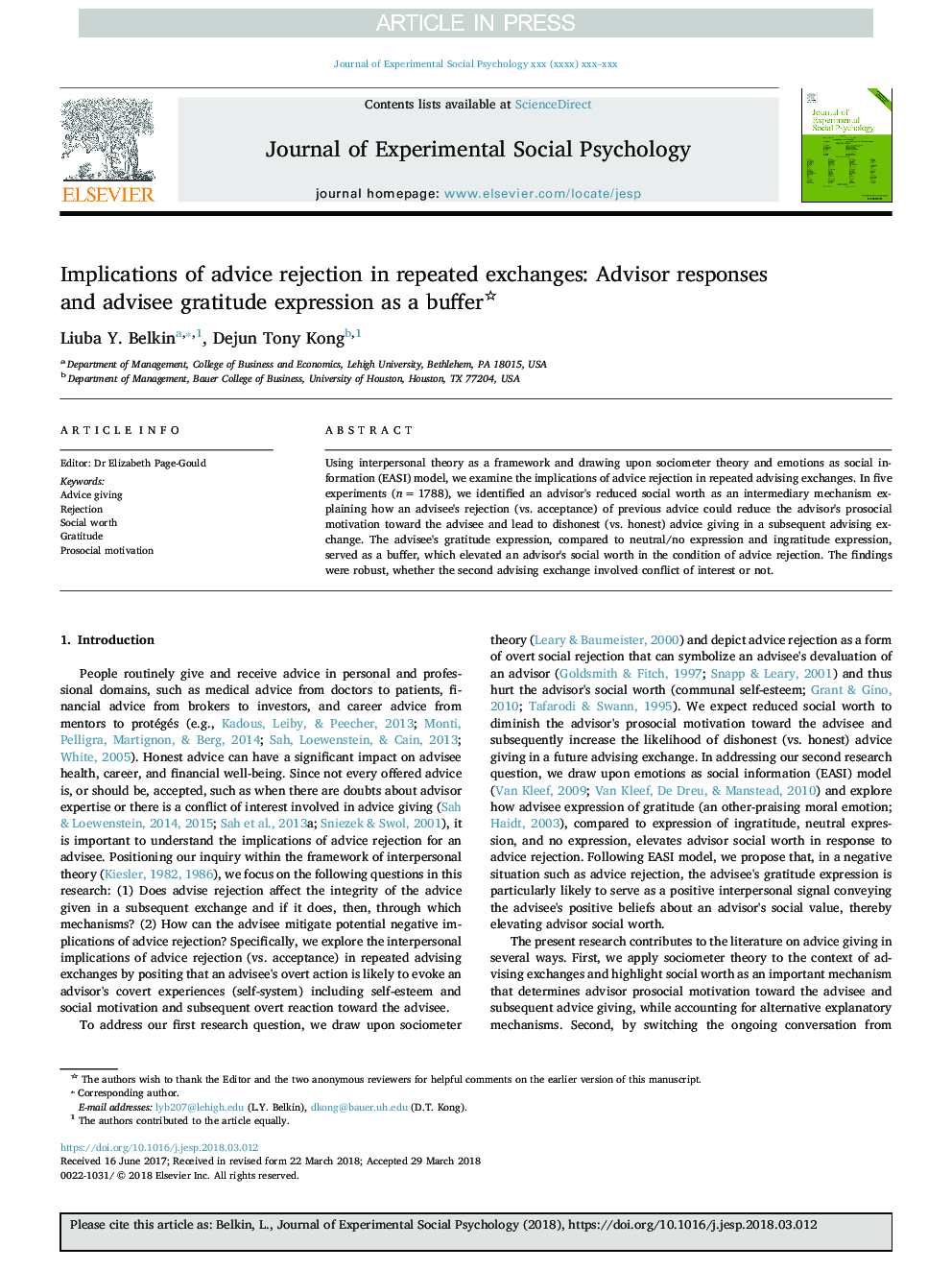| Article ID | Journal | Published Year | Pages | File Type |
|---|---|---|---|---|
| 7323995 | Journal of Experimental Social Psychology | 2018 | 14 Pages |
Abstract
Using interpersonal theory as a framework and drawing upon sociometer theory and emotions as social information (EASI) model, we examine the implications of advice rejection in repeated advising exchanges. In five experiments (nâ¯=â¯1788), we identified an advisor's reduced social worth as an intermediary mechanism explaining how an advisee's rejection (vs. acceptance) of previous advice could reduce the advisor's prosocial motivation toward the advisee and lead to dishonest (vs. honest) advice giving in a subsequent advising exchange. The advisee's gratitude expression, compared to neutral/no expression and ingratitude expression, served as a buffer, which elevated an advisor's social worth in the condition of advice rejection. The findings were robust, whether the second advising exchange involved conflict of interest or not.
Related Topics
Life Sciences
Neuroscience
Behavioral Neuroscience
Authors
Liuba Y. Belkin, Dejun Tony Kong,
